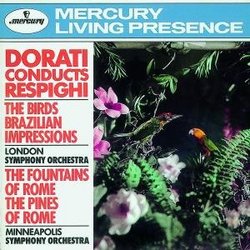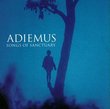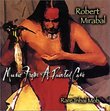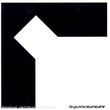| All Artists: Respighi, Dorati, Lso Title: Pines Fountains Birds Members Wishing: 0 Total Copies: 0 Label: Polygram Records Release Date: 9/12/1990 Genre: Classical Styles: Forms & Genres, Theatrical, Incidental & Program Music, Historical Periods, Modern, 20th, & 21st Century Number of Discs: 1 SwapaCD Credits: 1 UPC: 028943200721 |
Search - Respighi, Dorati, Lso :: Pines Fountains Birds
 | Respighi, Dorati, Lso Pines Fountains Birds Genre: Classical
|
Larger Image |
CD DetailsSimilarly Requested CDs
|
CD ReviewsDorati's Respighi milestone 05/12/1999 (5 out of 5 stars) "Dorati was always one of Respighi's biggest champions and it's too bad he didn't get around to recording more. This disk is a delight to have in Wilma Cozart's excellent rehab of her own original tapes.While the other works are among the best recordings of them made, it's the Brazilian Impressions that excites the most. Like Milhaud, Respighi was astounded by his trip to Brazil and opened up a creative horizon for him that counteracted his serious, depressive illnesses. The Impressions indicate a direction that led to other triumphs like the great ballet "Queen of Sheba", the opera "Maria Egiziaca", the sublime orchestral "Metamorpheosen" that gives any great orchestra a workout like Bartok's Concerto.If you have the old LPs, stick with them because there is an element of dynamic splendor somehow muted here. But if your LPs are to the point where there is more scratch than music, buy this disk and keep these old friends in your life." The Italian Neo Classicism and his major musical Ambassador! Hiram Gomez Pardo | Valencia, Venezuela | 10/16/2005 (5 out of 5 stars) "Joined even by the musical language and taste, Respighi develops a different estheticism respect to Ildebrand Pizzetti, more polished and mystic. The excessive instrumental decoration and affection for the dense color and, in the meantime, refined are derived directly substantially from Rimsky Korsakov and Richard Strauss, despite the generous discursiveness of the architectonic lines is very close to the great German musical tradition. Respighi is more inclined to naturalism and the return of the great orchestral masses with special emphasis in the search of new expressive elements based in the use of the color and the history or, in other words, in the preservation of the memory.
The Birds is a suite for reduced orchestra. Once more the pantheist gaze of this composer points out the influence of the Italian Neo classicism leaded by Casella. Five clavichordists fragments of the XVII inspired by the song of several birds (about pages of Pasquini, Phillipe Rameau and Jacques de Gallot and a British anonym ).It can feel the deliberated hedonistic avidity so typical of this Century as a clear response to the Rationalism Age: the triumph of the triviality over the reason empire. Brazil has been always a radiant beacon in the febrile imagination of Europe: From Julio Verne to Alexander von Humboldt; from Darwin to Darius Milhaud, the search for the most essential sample of virginal nature has inflamed and nourished the ancestral landscapes of Europe: the wild Amazon river, the intricate, compact and dense jungles; the visible attraction for the mystery of unknown, touched the soul of Respighi composing a fabulous biographical sketch. The fountains of Rome have in Toscanini a serious and hard to beat rival and the pines of Rome have found in Victor de Sabata. Nevertheles, Dorati makes a vibrant and emotional performance that, even it does not reach the colossal heights of these named conductors. Here you have a remarkable of what Respighi signified for the Italians. After Verdi 's death, the musical horizon experienced a notable lack of inspiration; despite the fact many Italian composers were seduced for the new musical proposals, Toscanini and De Sabata were not exactly fervent or devoted fans of the new musical forms, specially Toscanini, and both pages Pines and Fountains are works which talks about the Grandness and monumentality of Rome: once more Respighi goes in search of tradition conceived as the human form of measuring the time. A magnificent choice and one of my beloved albums in Dorati 's discography. " |

 Track Listings (16) - Disc #1
Track Listings (16) - Disc #1





